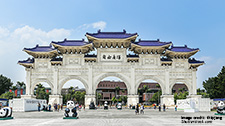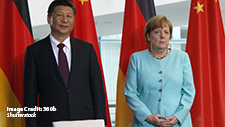China’s Military Reform: Present and Future – Part 2

Guo Qiucheng
Changes made to the structure of the Chinese armed forces have occupied much attention the world over, and are a central part of a wider program of reform being carried out within the People Republic of China (PRC). The overhaul of governance systems taking place in China is of such a massive scale and touches on so many areas that scholars and observers of the country’s politics are sometimes hard-pressed to catalogue, let alone interpret, the many concomitant changes going on. To help contribute to the burgeoning discourse on the subject with material directly form the source, this two-part report, available both in the original Mandarin and in English translation, seeks to explore the substance and logic of China’s military reform.
The Institute for Security and Development Policy is an independent, non-partisan research and policy organization based in Stockholm dedicated to expanding understanding of international affairs. With its extensive contact network with partner institutes in Asia, each year ISDP invites a number of visiting researchers as well as guest authors from the region to participate in research, discussion, and exchange with European scholars and policy officials. ISDP’s Focus Asia series serves as a forum for these researchers as well as guest authors to provide and clarify their viewpoints on the contemporary issues and challenges concerning their countries, adding a much-needed Asian perspective to the policy and research debate.
For enquiries, please contact: info@isdp.eu
No parts of this paper may be reproduced without ISDP’s permission.
Disclaimer: The opinions expressed in this paper are those of the author only and do not reflect those of ISDP or its sponsors.
Related Publications
-
ISDP Annual Report 2023
ISDP’s Annual Report for the year 2023. We look back on 2023, a year in which tensions and conflicts captured the strategic space in ISDP’s focus areas, making headlines around […]
-
Russia-DPRK Space Cooperation: It’s Politics, Not Science
The recent Vostochny summit between North Korean leader Kim Jong Un and Russian President Vladimir Putin has attracted much international attention. The fact that both leaders pledged to strengthen bilateral […]
-
Unpacking Beijing’s Narrative on Taiwan
Executive Summary Shaping economic rules, technology standards, and political institutions have been the core pillars of Chinese leader Xi Jinping’s efforts to advance his authoritarian model and weaken democratic processes […]
-
Cross-Strait Relations: A Conflict in Slow Motion?
Abstract Xi Jinping’s much-anticipated centennial speech left little doubt that it remains “an unshakeable commitment” for the Chinese Communist Party (CCP) to resolve the Taiwan issue. With the global pandemic […]
-
Merkel’s China Legacy
Abstract Angela Merkel’s time as the Chancellor of Germany is soon coming to an end. An unofficial mainstay of the European Union, she leaves office having helped put in place […]




